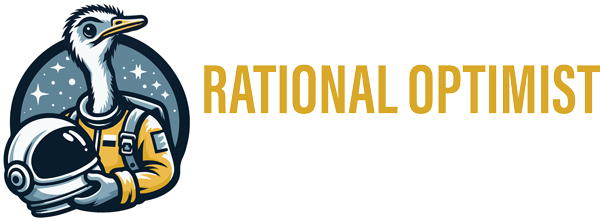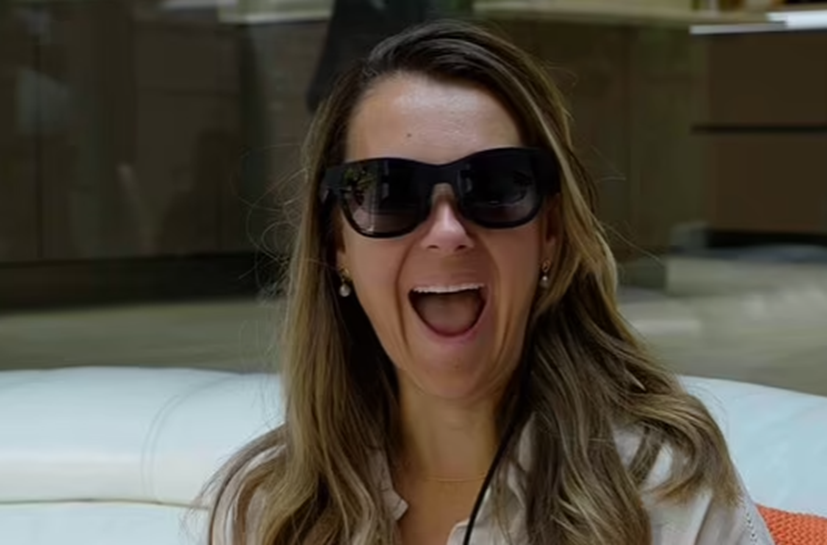The revolution begins
- Stephen McBride
- Sep 22, 2024
- 4 min read
Imagine you’re at family dinner. Everyone is laughing at the silly story being told by the youngest nephew.
But grandpa is left out of the banter because he can barely hear it.
That's life for 30 million Americans who can’t hear as well as they used to… plus another 1 million who are totally deaf.
Let me introduce you to XRAI Glass (pronounced x-ray). It lets people “read” conversations in real time. Like closed captions, but for real life. So cool.
These new smart specs use artificial intelligence (AI) to translate words it hears into text, displaying it right before your eyes.
Check out this deaf woman’s reaction to wearing the glasses for the first time. That’s the look of decades of social frustration melting away.
Source: DailyMail
Remember when computers filled entire rooms? Now we carry more computing power in our pockets than NASA used to send a man to the moon.
The same tech wizardry is what makes XRAI glasses possible. Tiny microchips allowed us to basically squeeze a microphone, a translator, a supercomputer, a powerful battery, and a teleprompter into a light plastic frame that sits on your face.
Imagine a deaf child finally able to laugh along with her classmates. Or a grandparent enjoying family banter they've missed for years. Man, I love innovation.
These glasses aren't perfect yet. Background noise can muddy the waters, and they're mostly a one-way street. They help deaf people understand others, not the other way around.
But if there's one thing we know about technology, it's that it gets better, faster, and cheaper.
Within a year or two, look for Meta to integrate “real time subtitles” into its AI-powered Ray-Bans.
And it’s only a matter of time until glasses like these can translate conversations in real time. Language is the biggest barrier between cultures. Imagine how big the market is for a device that let’s an American and Japanese businessmen break bread with each other!
Why we started the Rational Optimist Society: exhibit 369. We need a new media, one that’s on the side of a bright future. One that celebrates the inventors, the dreamers, and the problem-solvers who are building a better world for all of us.
We're not just observers in this story of progress. We're the authors. You’re not just reading this letter. You’re part of the story.
It's up to us to turn off the doom-scrolling, roll up our sleeves, and find ways to change things for the better.
The future can be brighter than we imagine, if we build it.
You in?
The college revolution begins in Texas
If you’ve been following our work, you’ve heard me rave about UATX, the new freedom-of-speech and meritocracy-focused University in Austin, TX.
I’m thrilled to report the school welcomed its first-ever class of 2028 this month. Founders Bari Weiss and Pano Kanelos wrote all about it here.
It’s easy to complain about the decline in American colleges, and plenty of people do. But a brave few have stepped up to actually help solve the problem. My hat’s off to Joe Lonsdale, Niall Ferguson, Bari Weiss, Pano Kanelos, and dozens of others who I’m sure poured their heart and souls into making this happen.
Go UATX! I hope to get to Austin soon to see it myself.
It’s your duty to be an optimist
That’s a lesson from oil tycoon J. Paul Getty, once the richest man alive.
I religiously listen to David Senra’s Founders podcast. It’s the best way to learn from history’s greatest entrepreneurs.
Getty, an optimist, said young businessmen would complain to him that there were no more opportunities. Sure, it was possible to make a million bucks in the good ol’ days. But you couldn't do it now.
They were saying this in 1965… one of the best times to start a business in history! People still make these excuses today.
Getty says pessimism is "merely convenient alibis for the unimaginative, the incompetent, the nearsighted and narrow-minded and the lazy."
Who will achieve more in life—the optimist who believes he can improve the world… or the pessimist who makes excuses?
(Rational) optimists decide the future.
Brutal communism, not capitalism
We often talk about how the world has never been better. People living longer, fewer babies dying. And every week 650,000 people, about the population of Boston, escape extreme poverty worldwide.
But there are exceptions to progress.
In 1980 Venezuela was the crown jewel of Latin America. Then it tried communism. Venezuelan living standards collapsed to WWII levels.
Source: Our World in Data
Venezuela shows what happens when communism wins and rational optimism loses. Poverty, misery, and empty store shelves.
But The New York Times isn’t convinced.
It recently said the carnage in Venezuela is because “the socialist model has given way to brutal capitalism.”
This would be laughable if it wasn’t so sad. More than 7 million Venezuelans were forced to flee their homes in the past few years.
Two thoughts:
It's easy to get riled up about the flood of migrants at America's doorstep. And I’m no open borders advocate. But put yourself in the shoes of a Venezuelan dad watching his kids' ribs start to show. Wouldn't you risk your life to reach America too?
Old media is rotten to the core. Time to build anew.
Why my family is moving to Abu Dhabi
People look at me funny when I tell them I’m moving my young family out of Ireland and to Abu Dhabi in the United Arab Emirates.
I want my kids to grow up with other striving optimists who know the way to get ahead in life is to work hard.
I believe the success (or lack thereof) of people in your neighbourhood rubs off on you. A new Harvard study confirms this.
The study looked at data from 57 million kids born in the US between 1978 and 1992. Researchers found growing up in a thriving community dramatically improves children’s outcomes.
Kids who grow up in great neighbourhoods are more likely to land good-paying jobs. But it’s more than that. They understand from a young age those jobs lead to better lives, because they see and feel it all the time.
Where you raise your kids really matters. And thanks to innovations like internet and high-definition real-time video calls, it’s possible to work from anywhere in the world.
Stephen McBride
PS: Help reignite optimism by forwarding this to your friends and encouraging them to join the Rational Optimist Society today.





